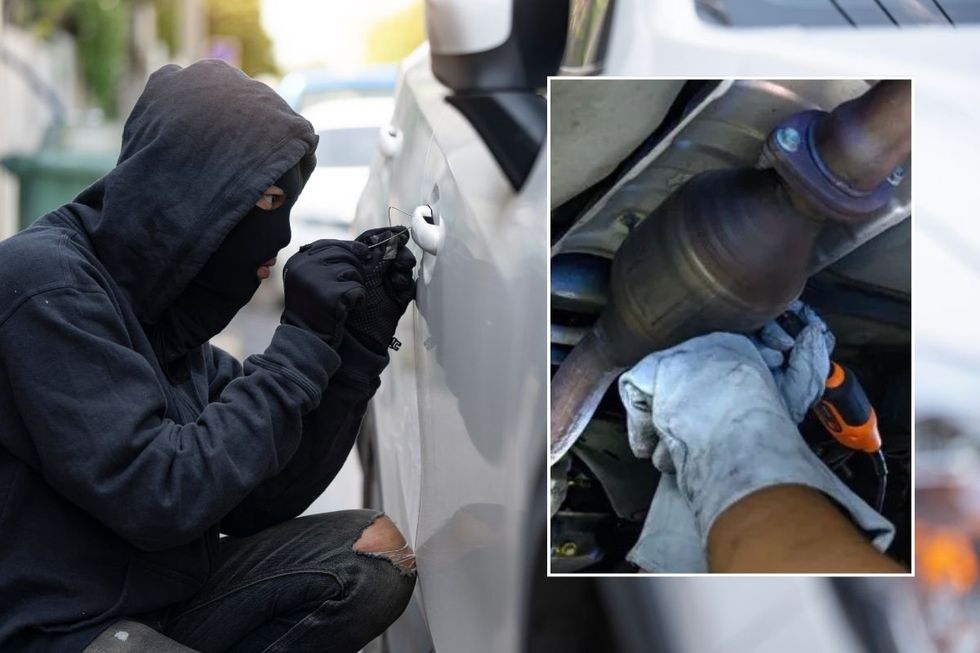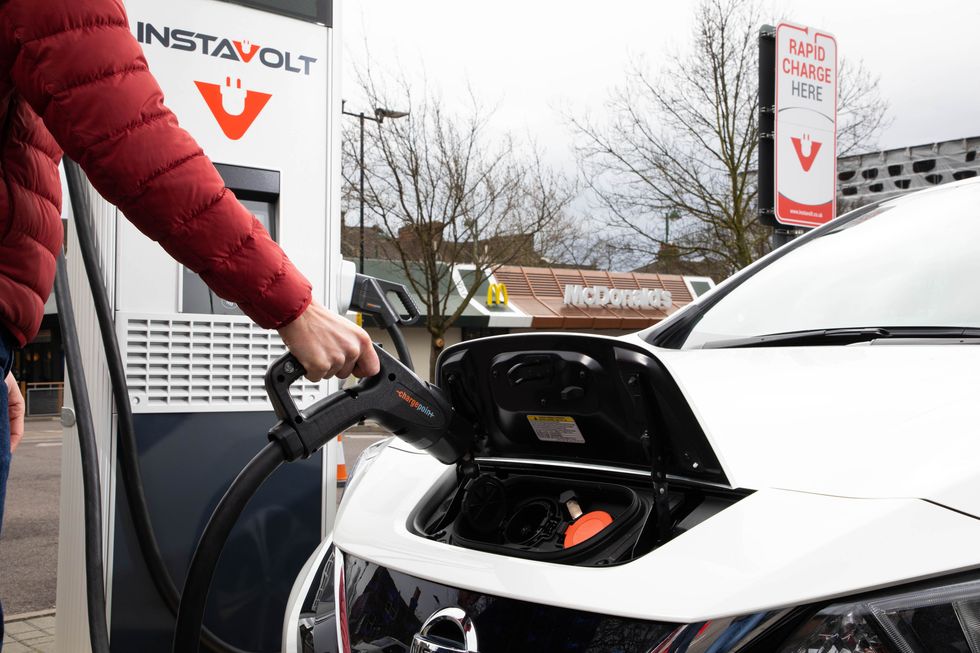Petrol, diesel and EV owners warned as thieves target catalytic converters and charging cables

Catalytic converter thefts have plummeted by 98 per cent in recent years
Don't Miss
Most Read
New data has found that petrol and diesel cars are being targeted by criminals less as thieves move on from targeting catalytic converters to electric vehicle charging cables.
Thefts of catalytic converters have plummeted over the last three years, according to new data, with just 150 being stolen across 30 different police forces last year.
In contrast, a staggering 6,909 catalytic converters were stolen in 2021. This peak was followed by 5,442 in 2022 and just under 2,000 in 2023.
South Yorkshire was found to have seen the largest drop, with 850 incidents reported in 2021, compared to just five last year, a staggering fall of 99.4 per cent.
TRENDING
Stories
Videos
Your Say
Experts have suggested that this could be down to strong police action and a fall in the value of precious metals used in the catalytic converters.
One of the key materials used in the devices is rhodium. The price of the metal hit a 10-year hugh in 2021, but has since dropped dramatically, reducing the value of the stolen devices.
Assistant Chief Constable Sarah Grahame of the National Police Chiefs' Council (NPCC) said it was working with partner agencies to crack down on criminals targeting the devices.
Some forces have encouraged to use forensic SmartWater tracking technology, which makes it easier for police to identify where the catalytic converter is from when it is tracked down.

Criminals are moving away from catalytic converters and targeting EV charging cables
|GETTY
The technology, which can be completed when a car is taken in for its MOT, has been backed by police forces for making it easier to crack down on theft and target the criminals taking advantage of drivers.
However, while thefts of catalytic converters continue to fall, criminals may be turning their attention to copper inside electric vehicle charging cables.
Tom Jervis, consumer reporter at Auto Express, said: "While it's encouraging to see catalytic converter thefts plummet so dramatically, our data shows that criminals are simply changing tactics rather than disappearing altogether.
"The rise in EV cable thefts is the latest reminder that as car technology evolves, so do the opportunities for crime."
 Catalytic converters contain valuable metals, making them a perfect target for thieves | GETTY
Catalytic converters contain valuable metals, making them a perfect target for thieves | GETTYLATEST DEVELOPMENTS:
Industry data shows that incidents of cable cutting has surged by 400 per cent over the last year, with thieves targeting copper inside.
Despite the criminals' intentions, chargepoint operators have highlighted how the copper inside the cables is likely only worth around £15 or £20.
While thieves will continue to target charging cables, chargepoint operators are having to fork out thousands of pounds to repair each cable.
One of the UK's largest charging network providers, InstaVolt, has taken steps to hire security at stations and fitting GPS trackers to its cables to deter would-be thieves.
 Instavolt said it had been particularly impacted by charging thefts | PA
Instavolt said it had been particularly impacted by charging thefts | PADelvin Lane, CEO of InstaVolt, said cable theft was one of the fastest-growing concerns that could put drivers off from investing in an electric car.
It could also undermine investment in the UK's charging network, with companies wanting to avoid additional repair costs if they are targeted by criminals.
Mr Jervis added: "It's clear that police and manufacturers have made real progress in tackling catalytic converter theft through better tracking, forensic marking and falling scrap values.
"But with the rapid growth of electric vehicles, the focus now has to shift to protecting the UK’s charging network."











